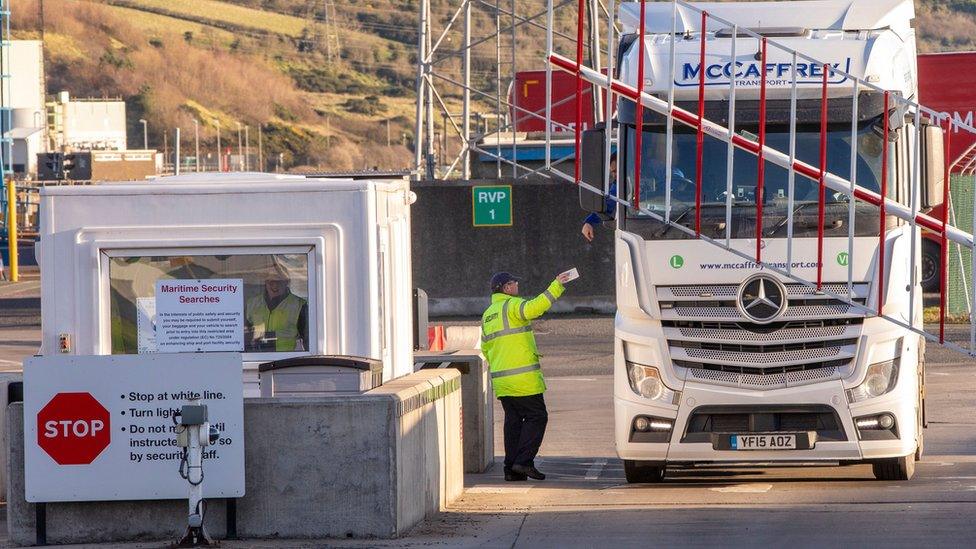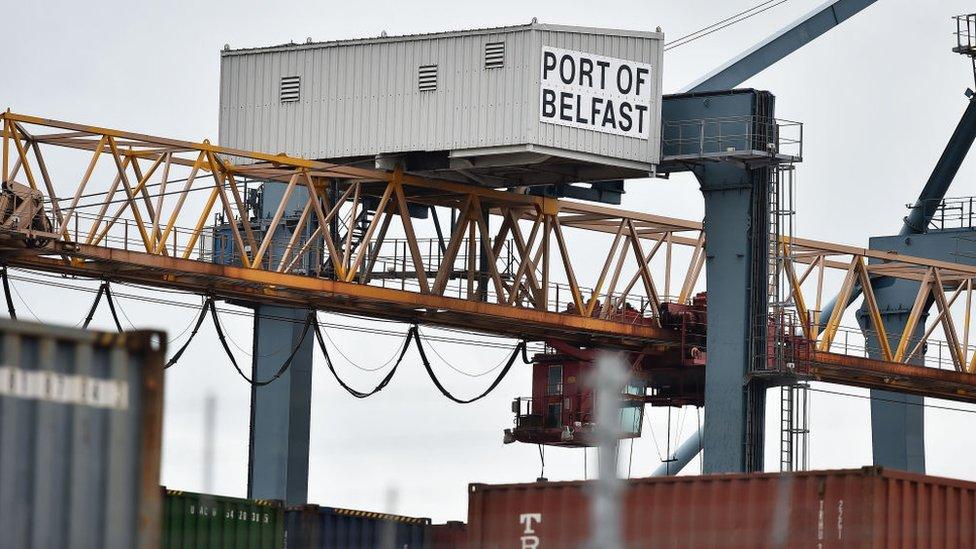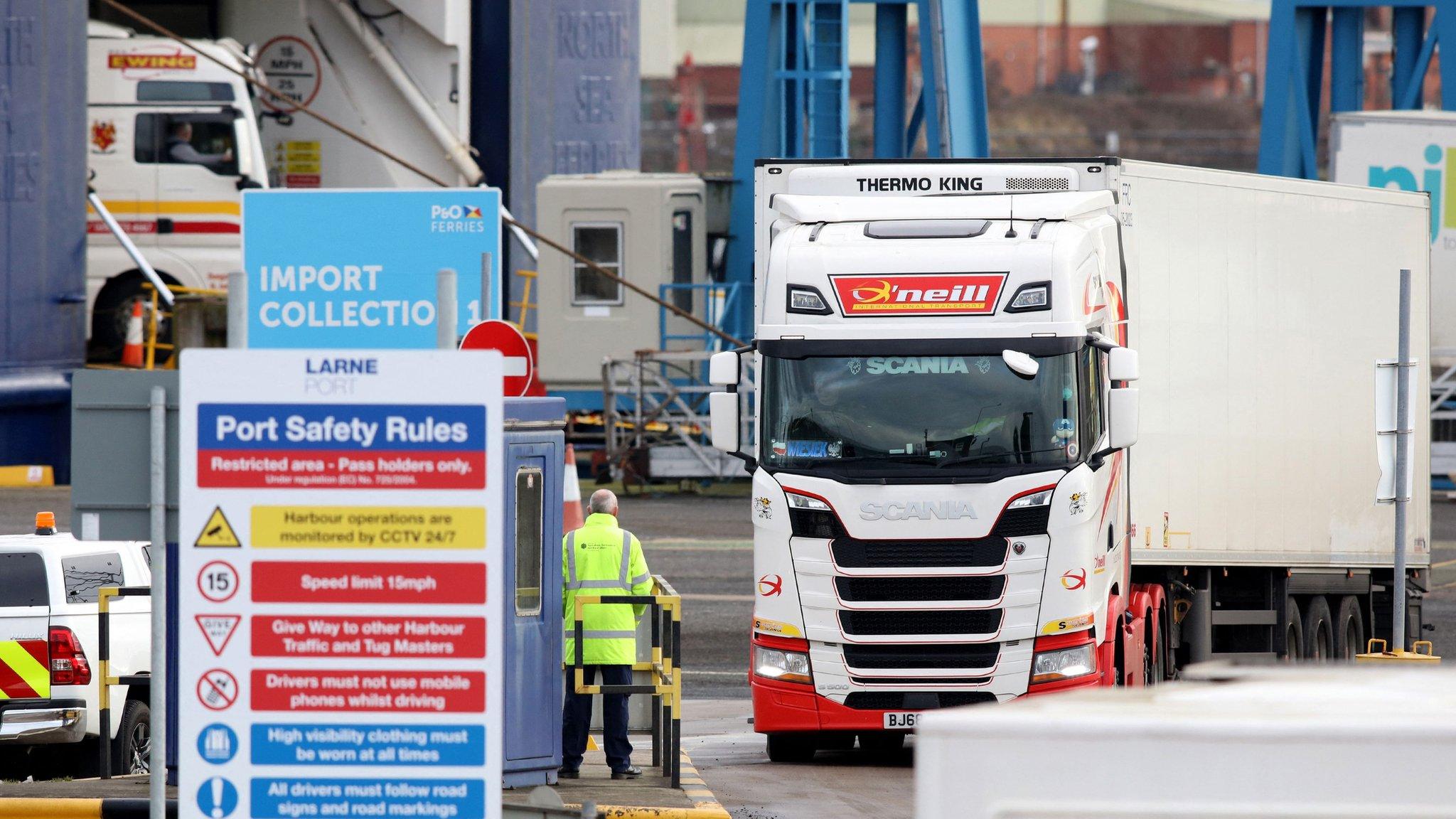NI Protocol: Value of GB sales to NI up in first year of new system
- Published
- comments

The impact on trade with Great Britain has been one of the most controversial aspects of the protocol
The value of GB sales to Northern Ireland increased by 7% in the year after the NI Protocol began to be implemented, official data suggests.
Some businesses and consumers complained that some GB companies are no longer selling to NI as a result of the protocol.
Until now that impact was hard to quantify.
The figures show the value of GB sales as £14.4bn in 2021, compared to £13.4bn in 2020 and 2019.
One caveat for the figures is they are not adjusted for the impact of inflation.
The NI Statistics and Research Agency (Nisra) has also said the overall trade data needed to be viewed in the economic context of the pandemic.
Global trade dipped in 2020 as a consequence of the pandemic before bouncing back strongly in 2021.
"When the figures are viewed in the broader picture of trends observed over the past number of years, the 2021 figures broadly align with what might reasonably have been expected were it not for the impact of the pandemic in 2020," Nisra said.

A bounce back in global trade and the impact of improved port infrastructure helped Belfast Harbour enjoy a strong 2021
The protocol is the post-Brexit arrangement agreed by the UK and EU.
It keeps Northern Ireland inside the EU's single market for goods, giving manufacturers better access to the EU than firms in other parts of the UK.
However, it also means there are new checks and controls on goods entering NI from Great Britain.
The impact on trade with Great Britain has been one of the most controversial aspects of the protocol.
The figures show that Northern Ireland's external sales, which consist of international exports and sales to GB, rose by 14.5% to almost £25bn in 2021.
Sales to GB alone were up by 13% to almost £13bn while exports to other destinations were up 16% to just over £12bn; compared to the pre-pandemic year of 2019 exports were up just over 4%.
GB remained the most significant single market for external sales from Northern Ireland businesses, accounting for 16.6% of total sales.
In 2021, exports to the Republic of Ireland increased by 23% to reach a record £5.2bn.

This is somewhat at odds with earlier data from Ireland's Central Statistics Office which estimated that the value of NI exports to the Republic in 2021 was up 65% to around £3.35bn.
This sort of "asymmetry" in trade data is not unusual and reflects differences in methodology or interpretation between different national statistics agencies.
Exports to other EU countries also increased but by a more modest amount, up 18% from £2.2bn to £2.6bn; that is below the £2.7bn achieved in the peak year of 2018.
Figures produced earlier this year by the EU's statistics agency, Eurostat, suggest that overall UK goods exports to the EU declined by nearly 14% in 2021 compared with 2020., external
Meanwhile the Nisra figures show NI exports to the rest of the world increased by £300m or 8.3% over the year, to £4.4bn.
The Manufacturing sector accounted for 55% (£6.7bn) of all exports sales and increased by 9.4% over the year, with a 21.5% increase between 2011 and 2021.
Related topics
- Published14 November 2022

- Published11 November 2022
